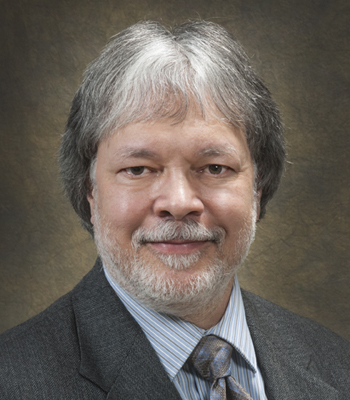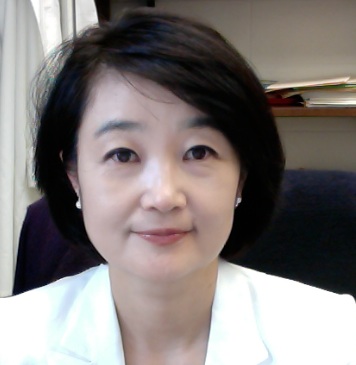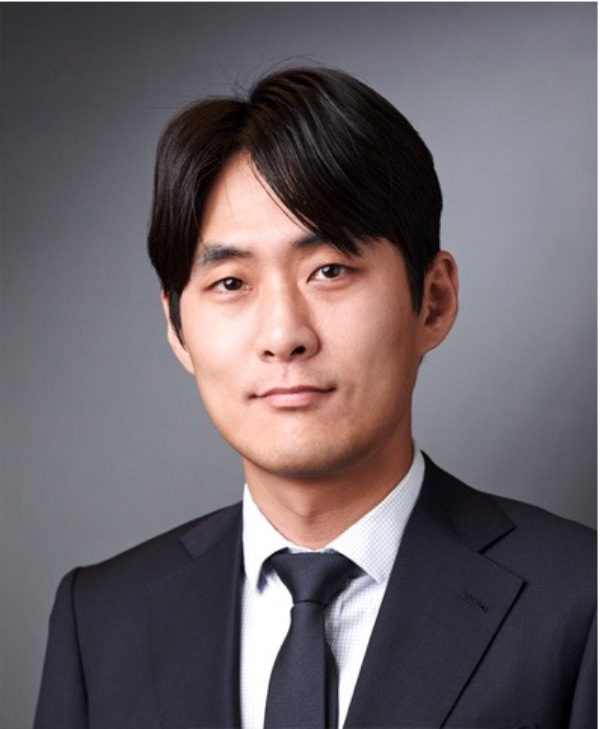|
Volume 1 Issue 2 Core Values and Opening Statement:Welcome to the second edition of our faculty newsletter, Connect. This quarterly newsletter (and soon, a website) disseminates content for the faculty, from the faculty. Our goal is to update, inform and enrich our faculty community. Connect contains links to resources, upcoming events and more. As we engage each day in the School of Medicine’s mission, we bring with us our core values to create and maintain a culture of mutual respect with a genuine awareness of belonging for all faculty. Send questions, comments, content ideas and faculty news to SOMfacultyconnect@wayne.edu. Did you miss Volume 1, Issue 1 of Connect? Find it here. Coffee with SOM Faculty and Dean Wael SakrReady to connect with faculty? Block out some time between 3 to 4:30 p.m. on the fourth Wednesday of each month. Join us for the first faculty coffee event April 26 from 3 to 4:30 p.m. in room 1358 Scott Hall. Grab a coffee, meet colleagues, engage in casual conversation and just Connect! Meet – Biochemistry, Microbiology and Immunology
The Department of Biochemistry, Microbiology and Immunology serves our community, state, nation, and the world by applying the tools of our disciplines to improving health and wellness for all members of our society, including historically underserved populations. Scroll down to the bottom of this issue to learn more from the department's chair, Dr. Philip Pellett, on his views on the department's research strengths, faculty expertise and collaborations.
New Faculty HiresWelcome to our School of Medicine Community! According to the Office of Faculty Affairs, these faculty joined the Wayne State University School of Medicine since November 2022. Clinical:
Research:
If you see them in the hallway, take a moment to say hello! Teaching and MentoringThe Biomedical Career Advancement Pipeline Program is a program for underrepresented high school students to engage in mentored research alongside senior research faculty at Wayne State University. Priority is given to students who are Wayne County residents, Detroit Public High School students, and those from educationally, environmentally or economically disadvantaged backgrounds. The program helps students receive opportunities to develop professional/technical skills, expand their professional networks and gain confidence in their academic/career goals. Faculty are afforded the opportunity to develop and/or refine mentoring skills (e.g., effective communication, leadership and building trust). Importantly, faculty can play an active role in improving the landscape of the biomedical workforce by training the next generation of minorities in STEM. The great success of this program is demonstrated by the excellence of the BCAP mentees. Mounika Katta, a recent BCAP student, was a second author on a 2022 publication from Dr. Robert Akins’s lab. Thirteen BCAP scholars gave outstanding research presentations at the Junior Science and Humanities Symposium in February, and three will move on to the National Symposium (BCAP scholars). This year’s program is scheduled to run from June 10 through Aug. 4 and there is still room for additional mentors. Engage with the Detroit community by registering as a mentor by May 8. Honors and AwardsWayne State University’s School of Medicine has moved up one level in the Blue Ridge Institute for Medical Research ranking of medical schools based on National Institutes of Health funding in 2022! Five departments (Emergency Medicine, Internal Medicine, Ophthalmology, Physiology and Radiology) earned more than $5 million in funding for 2022. These rankings can only be achieved and sustained by continued active grant submissions by our faculty. Let’s keep it up and congratulations! Thank you to all the faculty who help train our future physicians. The 266 M4 medical students achieved a 100% Match rate for residency assignments! The dedication of our faculty and students is amazing. Kudos to all! Have you heard...?The School of Medicine Biomedical Graduate Programs has raised doctoral student stipends to $30,000 per year. This nearly $3,500 increase should help our students with their living expenses and our departments with recruitment. If you have a PhD student, you may want to contact your department administrator for an updated budget. The EPIC URM Seminar Series (expanded programming for interdisciplinary collaboration to create unique research missions) has four more speakers for the current cycle. This interdisciplinary seminar series showcases the research programs of non-WSU faculty who are underrepresented in science. Introducing our faculty to this diverse cohort provides each of us an opportunity to have a broader more inclusive network of scientists with which to interact. Dean Wael Sakr is an avid supporter of this series and can be seen in attendance. Ultimately, the interactions may forge new collaborations and serve as an additional resource to consider when asked to nominate scientists for awards, key leadership positions, etc. Visit the EPIC URM website for dates time and location. Did you hear that the editorial boards of the journals Neuroimaging and Neuroimage:Reports resigned in mid-April as a protest to the open access fees charged by the publisher, Elsevier? Read the story here. Have you heard that Wayne State University received a five-year, $11.3 million award from the National Institute of Environmental Health Sciences of the National Institutes of Health to create the Center for Leadership in Environmental Awareness and Research? Launched in September 2022, this new Superfund Research Program has the mission to develop an integrated transdisciplinary framework to address human exposure routes and health risks from volatile organic compounds in urban areas. The center is focused on understanding and mitigating adverse birth outcomes and developmental health problems that have been associated with urban environmental exposure to volatile organic chemicals, and will provide novel methods for assessment, testing and mitigation to help reduce toxic exposures and improve health outcomes. CLEAR will focus on Detroit as the principal study site and bring together extraordinary collaboration teams of engineering and biomedical scientists, educators and community partners. This novel enterprise, led by Melissa Runge-Morris, M.D., professor of Oncology and of Pharmacy, and Carol Miller, Ph.D., professor of Civil and Environmental Engineering, is a testament of outstanding and successful collaborative work across Medicine and Environmental Engineering disciplines in our university. School of Medicine researchers Drs. Gil Mor, Douglas Rudin, Michael Petriello and Jiahui Ding, working with Dr. Marianna Sadagurski (Biological Sciences), are key drivers in one CLEAR project studying environmental impacts in the placenta’s function and biology. Core support is being provided by the Chemistry Department’s Lumigen Instrument Center, the Center for Urban Studies community engagement team, the Communication Department research translation team, the Henry Ford Health Data Coordinating Center, and a new research experience and training program jointly led by faculty across disciplines. External partners and collaborating researchers are also engaged in this initiative, including Henry Ford Health, University of Florida and others. Congratulations to Drs. Miller, Runge-Morris and team for this exceptional achievement that will help the Detroit community! Wellness CornerDo you know of a student who could benefit from mental health services? The Campus Health Center can help. Please encourage them to fill out a Mental Health Triage form to see a mental health clinician. All information students provide will be confidential except in the case of legal and/or safety reasons. News from our LabsDr. Hyeong-Reh Kim, professor of Pathology, received a highly collaborative R01 grant from the NIH/NCI. The project, “A novel AR [androgen receptor] degrader in castrate-resistant prostate cancer,” ranked in the top 2 percentile with an impact score of 18! This new grant will test the efficacy of a novel therapeutic platform called AUTOTAC, an autophagy-targeting chimera, for triggered AR degradation. AUTOTAC is composed of an AR-binding Two junior faculty members in the Department of Pharmacology secured funding for their research.
EventsMark your calendars for these campus events:
Other regional events of interest
Do you know of other events? Email the Connect team for events in the upcoming issue (next publication expected July 2023) at SOMfacultyconnect@wayne.edu. Funding OpportunitiesWayne State University’s Grants Boost Program has a July 18 deadline. Please contact the Office of the Vice President for Research for any clarifications at rifs@wayne.edu. Looking for more Internal and External Funding opportunities? Check out this list: https://somresearch.med.wayne.edu/research-opps ResourcesFunding opportunities are available from foundations and other private sources. Professional staff from the Development Office Foundation Relations is available to connect projects and ideas with specific foundations and corporations; assist with writing and editing letters of inquiry, proposals and concepts; leverage community partners to help foundations and corporations fulfill their mission; set up meetings and assist with developing your elevator pitch for funders; and help with submissions of successful proposals. For more information, contact WSU Corporate and Foundation Relations. PublicationsDid you have a publication that should be highlighted? Maybe you wrote or received an editorial on a study? Let us know at SOMfacultyconnect@wayne.edu. Meet – Biochemistry, Microbiology and Immunology Here is our full Q&A with Dr. Philip Pellett, chair of the Department of Biochemistry, Microbiology and Immunology. What are the major research areas of your department? The big subjects of our research are covered in our name, in no particular order: biochemistry, microbiology and immunology. Immunology is the system that defines self- and non-self, and provides a multitude of defenses against an extraordinarily broad range of invaders and other challenges. BMI’s core immunology faculty members have international reputations in the areas of T regulatory cells and inflammatory processes, and members of our extended faculty study the roles of our immune system in controlling infectious diseases and cancer, as well as in defining the populations of immune cells that are active throughout development. Biochemistry and its offshoot, molecular biology, are fundamental to pretty much every other fundamental life science. Departmental faculty are involved in understanding enzymes involved in regulating the behavior of heavy metals (e.g., zinc and iron), development of groundbreaking methods for reprogramming cells, and development of statistical and artificial intelligence methods to address an array of problems. In addition, we are home to a handful of structural biologists who employ crystallography to determine the atomic structures of proteins involved in important disease processes, and do things that enable others at Wayne State to have access to the WSU-supported protein structure beamline at the Argonne National Laboratory. This work extends to use of structural biology to guide development of novel drugs, including a long-standing collaboration with one of the world’s great antiviral development groups at Emory University. Microbiology encompasses studies of bacteria and viruses. Our work in this area includes studies of Vibrio cholera, which causes the too often deadly disease, cholera. Other work includes defining the nature of the collection of bacteria (the microbiome) present in the tissues and fluids present at the maternal-fetal interface, and studying bacterial vaginosis or vaginal candidiasis. Our virology activities include studies of the mechanisms involved in assembling the very complex virion (the transmissible particle) of human cytomegalovirus, an important human pathogen. Our affiliated virologists study the interactions between viruses and our immune system, and the practical applications of identifying viruses such as SARS-CoV-2 in municipal sewage. What collaborations occur within your department? Collaboration in our department comes in several forms. Our structural biologists work with each other in a variety of ways, from coordinating beamline access to working together to solve complex issues related to solving protein structures, and working to solve structures of proteins important in the work of others in the department. Our bacteriologists have collaborated on studies of intestinal microbiome variation in the context of cholera infections, and our virologists and structural biologists have worked together to determine and predict structures of virus proteins of interest. What collaborations occur with other departments/divisions/universities?
What should other faculty know about your department’s expertise to collaborate more? We have worked hard to make our website (link) informative and accessible – a visit there would be a good first step. Directly contacting individuals of interest by email would be a good way to start the conversation. What is unique about your department’s teaching? Our teaching portfolio is a reflection of the diversity embedded in our name. We are responsible for teaching biochemistry to first-year medical students, and immunology and microbiology to second-year students. We also provide fundamental courses in each of our disciplines for first-year M.S. and Ph.D. students from our and other departments, provide instruction in biochemistry for WSU’s renowned Baccalaureate program, and postgraduate didactic and laboratory experiences for fellows in Maternal and Fetal Medicine, and in Infectious Diseases. We have also provided diverse laboratory experiences for undergraduate and high school students. With leadership from Dr. Matt Jackson, we have been learning how to employ a variety of modern didactic methods in our medical and graduate courses. I am especially proud of two things: First is the consistently respectful manner of our interactions with our graduate students. The second is the array of interesting and important things our graduates do via their jobs in academia, industry and government. What makes your department great? The disciplines we work on connect to fundamentally important aspects of life on our planet, which provides a robust foundation for everything we do. Our faculty is a group of highly dedicated scientists and teachers who are individually and collectively committed to solving problems of societal importance and enabling healthy growth of the next generation of teachers and scientists. Many threads connect all of that to our students, past and present. What makes your staff great? This is a good and important question. We are very fortunate to have an office staff that is consistently and amazingly committed to doing things that facilitate the work in our laboratories, and enables us to deliver on our broad range of educational commitments. Especially important is the intensity of their commitment to doing things that connect to and affect our students, always working to prevent or quickly address problems of whatever sort might arise. They are a group of quiet and modest heroes. For more information about the Department of Biochemistry, Microbiology and Immunology visit: https://biochemmicroimmuno.med.wayne.edu/ Have an idea for our newsletter? Contact us at SOMfacultyconnect@wayne.edu |

|

 small molecule linked to an autophagy ligand that targets and brings AR to the protein degradation machinery, thus leading to efficient removal of the receptor. This international collaboration with Seoul National University also spans multiple divisions at the School of Medicine and across campus. Collaborating faculty include Elisabeth Heath (Oncology), Seongho Kim (Oncology), Dongping Shi (Pathology), Michael Cher (Urology), Lisa Polin (Oncology) and Sijana Dzinic (Oncology), along with Katherine Gurdziel (Pharmacology, Genomics Core), Paul Stemmer (College of Pharmacy, Proteomics Core) and Erin Katz (DLAR). Congratulations Dr. Kim and team for this outstanding achievement!
small molecule linked to an autophagy ligand that targets and brings AR to the protein degradation machinery, thus leading to efficient removal of the receptor. This international collaboration with Seoul National University also spans multiple divisions at the School of Medicine and across campus. Collaborating faculty include Elisabeth Heath (Oncology), Seongho Kim (Oncology), Dongping Shi (Pathology), Michael Cher (Urology), Lisa Polin (Oncology) and Sijana Dzinic (Oncology), along with Katherine Gurdziel (Pharmacology, Genomics Core), Paul Stemmer (College of Pharmacy, Proteomics Core) and Erin Katz (DLAR). Congratulations Dr. Kim and team for this outstanding achievement!  Dr. Joongkyu Park, assistant professor since 2018, was awarded a $200,000 Alzheimer Association Research Grant for “Local synaptic protein biogenesis in tauopathy.” Research in Dr. Park’s laboratory focuses on understanding synaptic molecular dynamics underlying memory formation in health and its impairments in Alzheimer’s Disease and related dementias. Brains from AD patients and mouse models show loss of dendritic spines and alterations in synaptic functions. This new award focuses on local synaptic translation in the hippocampus of tau pathology mouse models and will investigate changes in the local translation machinery and its activity in these models using biochemistry, immunohistochemistry and behavioral tests.
Dr. Joongkyu Park, assistant professor since 2018, was awarded a $200,000 Alzheimer Association Research Grant for “Local synaptic protein biogenesis in tauopathy.” Research in Dr. Park’s laboratory focuses on understanding synaptic molecular dynamics underlying memory formation in health and its impairments in Alzheimer’s Disease and related dementias. Brains from AD patients and mouse models show loss of dendritic spines and alterations in synaptic functions. This new award focuses on local synaptic translation in the hippocampus of tau pathology mouse models and will investigate changes in the local translation machinery and its activity in these models using biochemistry, immunohistochemistry and behavioral tests. 